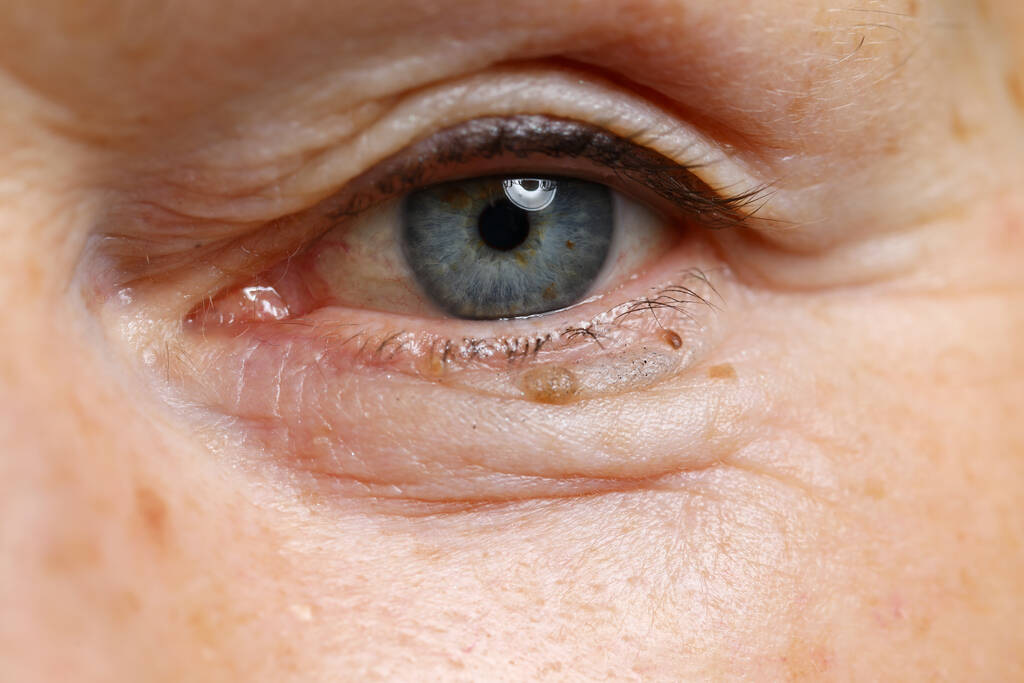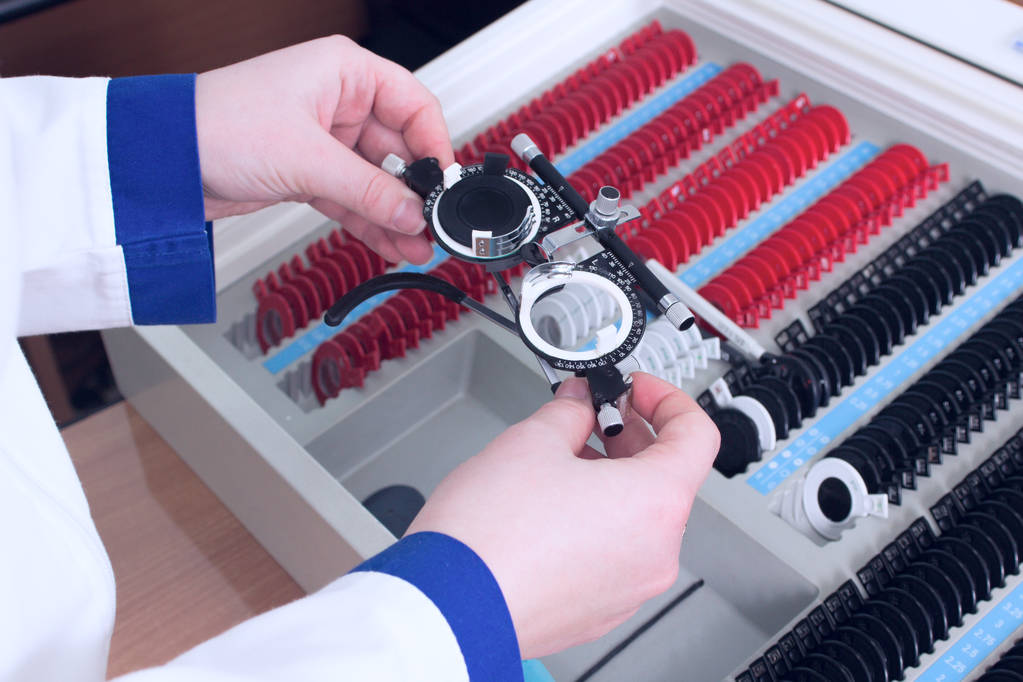Discover how vision changes as we age and learn valuable tips on how to maintain healthy eyes.
How Does Vision Change with Age and How to Take Care of Your Eyes
As we age, our bodies go through various changes, and our eyes are no exception. Understanding how vision changes with age is crucial for maintaining eye health and taking appropriate care. In this article, we will explore the fascinating world of the aging eye, common vision problems in older adults, the impact of age on vision, the importance of regular eye examinations, tips for maintaining good eye health, and coping with vision loss in old age. So grab a cozy seat and let’s dive in!

Understanding the Aging Eye
Have you ever wondered why your vision seems a tad blurrier than it used to be? Well, the science behind vision and aging holds the answer! As we grow older, the lens of the eye becomes less flexible, making it harder to focus on close objects – a phenomenon commonly known as presbyopia. Additionally, the amount of light that reaches our retina decreases, making it more difficult to see in dim lighting conditions. But worry not! There are many ways to ameliorate these changes and ensure your peepers stay in tip-top shape.
The Science Behind Vision and Aging
Let’s take a closer look at the marvelous science behind vision and aging. Our eyes function much like a camera – they have a lens that focuses light onto the retina, a layer of tissue at the back of the eye that converts light into electrical signals. These signals are then transmitted to the brain, where they are interpreted as the images we see. With age, the lens becomes less flexible, hindering its ability to bring close objects into clear focus. Moreover, the cells in the retina may degenerate, leading to vision loss. Fascinating, isn’t it?
Now, let’s delve deeper into the intricate workings of the aging eye. As we age, the lens of the eye undergoes several changes. The proteins in the lens start to break down and clump together, forming cloudy areas known as cataracts. These cataracts can cause blurry vision, glare, and difficulty seeing in low-light conditions. In addition to cataracts, another common vision problem that older adults may encounter is age-related macular degeneration (AMD). AMD affects the macula, the central part of the retina responsible for sharp, detailed vision. As the macula deteriorates, central vision can become distorted or completely lost.
But that’s not all! Glaucoma, a group of eye diseases that can damage the optic nerve, is yet another concern for aging eyes. The optic nerve is responsible for transmitting visual information from the retina to the brain. When the optic nerve is damaged, it can lead to peripheral vision loss and, in severe cases, complete blindness. Glaucoma often develops slowly and painlessly, making regular eye exams crucial for early detection and treatment.
Common Vision Problems in Older Adults
Now that we have a basic understanding of the aging process, let’s explore some common vision problems that may arise as we waltz through the golden years. Cataracts, a clouding of the lens, are a prevalent issue. Age-related macular degeneration (AMD), a condition that affects the central vision, can also occur. Glaucoma, a group of eye diseases that can damage the optic nerve, is yet another concern. These are just a few examples of the challenges our eyes may face, but fret not – we have ways to combat them!
Aside from cataracts, AMD, and glaucoma, there are several other vision problems that older adults may encounter. Diabetic retinopathy, a complication of diabetes that affects the blood vessels in the retina, can cause vision loss if left untreated. Dry eye syndrome, a condition where the eyes do not produce enough tears or produce poor-quality tears, can lead to discomfort, blurry vision, and increased sensitivity to light. Floaters, tiny specks or cobweb-like shapes that float across your field of vision, are also more common as we age. While floaters are usually harmless, they can be bothersome and may indicate a more serious underlying condition.
Fortunately, there are various treatments and interventions available to address these vision problems. Cataract surgery, for example, involves removing the cloudy lens and replacing it with an artificial lens, restoring clear vision. For AMD, there are medications and therapies that can slow down the progression of the disease and preserve vision. Glaucoma can be managed through eye drops, laser surgery, or traditional surgery to reduce intraocular pressure and prevent further damage to the optic nerve.
It’s important to remember that regular eye exams are essential for maintaining good eye health as we age. Eye care professionals can detect and diagnose vision problems early on, allowing for timely intervention and treatment. Additionally, adopting a healthy lifestyle that includes a balanced diet, regular exercise, and protecting your eyes from harmful UV rays can go a long way in preserving your vision.
The Impact of Age on Vision
Now that we’ve shed some light on the science behind vision and explored common vision problems, let’s discuss the broader impact of age on our visual abilities. One key aspect is visual acuity – the sharpness of our vision. With age, visual acuity tends to diminish, making it harder to discern fine details. This is especially noticeable when reading tiny print or navigating menus in dimly lit restaurants. Age-related eye diseases and conditions, such as AMD and glaucoma, can also significantly impact vision. But fear not, my friend, for knowledge is power, and together we will conquer these challenges!
How Age Affects Visual Acuity
Visual acuity, the ability to see fine details clearly, tends to decline as we grow older. You may find yourself holding books at arm’s length or squinting more often than before. This is due to a gradual loss of elasticity in the lens and changes in the retina. But worry not, for there are optical aids and corrective measures available to help you navigate the intricate world of fine print and regain your visual pizzazz.
Age-Related Eye Diseases and Conditions
While aging can bring wisdom and experience, it can also make us more susceptible to certain eye diseases and conditions. Age-related macular degeneration, a leading cause of vision loss in older adults, affects the central part of the retina, impairing our ability to see straight ahead. Glaucoma, on the other hand, damages the optic nerve and can cause gradual peripheral vision loss. By staying informed, getting regular eye check-ups, and following expert advice, we can rise above these challenges like the vision warriors we are!
The Importance of Regular Eye Examinations
Just as we visit the dentist regularly to keep our pearly whites in top form, regular eye examinations are crucial for maintaining our visual well-being. Detecting vision problems early on can make a world of difference in preventing further deterioration. Plus, who doesn’t enjoy an eye examination? The intriguing gadgets, the charts to decipher, and the chance to showcase your superpower – the ability to read the tiniest letters without breaking a sweat!
Detecting Vision Problems Early
Early detection is key when it comes to preserving your precious peepers. By visiting your friendly eye care professional regularly, potential vision problems can be identified in their nascent stages and appropriate measures can be taken. Remember, it’s better to catch those pesky issues early on than to let them cast a shadow on your visual journey.
What to Expect During an Eye Examination
Curious about what happens during an eye examination? Well, wonder no more! A typical examination includes a series of tests to measure visual acuity, check for refractive errors, and evaluate eye health. The process may involve peering through lenses, having your peripheral vision assessed, and gazing into bright lights. Fear not, my friend, for these tests are painless and help us steer your visual ship in the right direction!
Tips for Maintaining Good Eye Health
Now that we have traversed the magical realms of aging eyes and the importance of regular eye examinations, let’s focus on some practical tips for maintaining good eye health. The old saying, “You are what you eat,” holds true for our eyes as well. A diet rich in fruits, vegetables, and omega-3 fatty acids can work wonders. And let’s not forget the role of lifestyle – giving your eyes a break from prolonged screen time and wearing sunglasses to shield them from the sun’s mighty rays can be game-changers!
Nutrition and Eye Health
Want to give your eyes a healthy boost? Include foods such as leafy greens, carrots, citrus fruits, and fish in your diet. These power-packed treats are chock-full of nutrients that can keep your eyes sparkling like stars on a moonlit night. So go ahead and embark on a culinary adventure for the sake of your precious peepers!
The Role of Lifestyle in Eye Care
Our peepers need some tender loving care, and lifestyle choices play a pivotal role in their well-being. Taking regular breaks from screen time, protecting your eyes from harmful UV rays by wearing sunglasses, and maintaining a healthy weight can all contribute to maintaining good eye health. So let’s shake those tail feathers, indulge in a rejuvenating eye stretch, and show our eyes the love they deserve!
Coping with Vision Loss in Old Age
As we gracefully age, it’s essential to face challenges head-on and adapt to changes. Coping with vision loss can be emotionally and psychologically challenging, but fear not, for there is a myriad of assistive devices to help you through. Moreover, addressing the emotional impact and seeking support can make the journey smoother and brighter, like a rainbow on a sunny day.

Assistive Devices for Low Vision
When the clouds of vision loss loom overhead, a ray of hope comes in the form of assistive devices. Magnifiers, talking watches, large-print books, and voice-controlled technology are just a few examples of the incredible tools that can enhance your independence and keep you connected to the vibrant world around you. So let’s embrace these ingenious creations and marvel at their magic!
Emotional and Psychological Aspects of Vision Loss
Vision loss can be a challenging journey, and it’s important to nurture our emotional and psychological well-being as we navigate through these changes. Seeking support from friends, family, and eye care professionals, and exploring coping strategies can ease the burden and help illuminate the path ahead. Remember, my friend, even in the darkest hour, there is a glimmer of light and a hand to hold.
So there you have it – an informative and playful expedition into the world of aging eyes and the importance of caring for them. Armed with knowledge, a dash of humor, and a sprinkle of inspiration, you are now equipped to embark on your eye health journey with confidence. Remember, your eyes are your window to the world, so let them sparkle and shine!







This is a excellent blog, would you be involved in doing an interview about just how you designed it? If so e-mail me!
Thank you for your sharing. I am worried that I lack creative ideas. It is your article that makes me full of hope. Thank you. But, I have a question, can you help me?